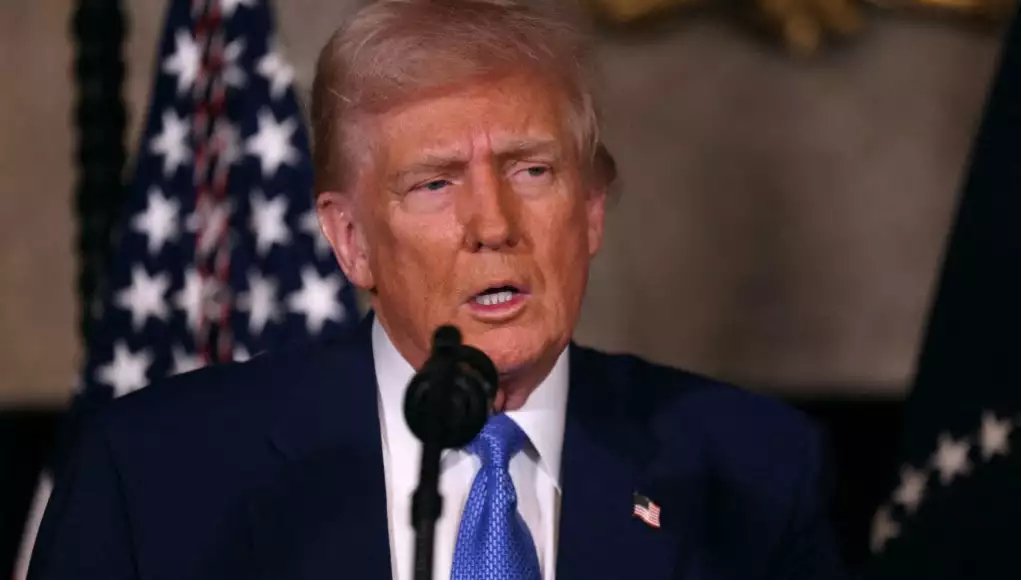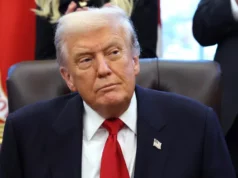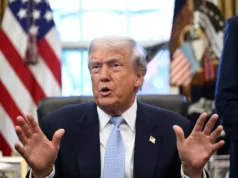US President Donald Trump’s recently imposed 14% tariff on Nigerian companies’ exports poses a serious threat to the country’s $10 billion yearly exports to the US, possibly upending important industries like the export of oil and agricultural products, experts and trade groups worried about a possible global trade war said Thursday.
The economic experts, in separate interviews with The PUNCH, noted that the policy, which would raise the prices of goods and services for consumers, would weaken the standard of living, slow down manufacturing activities, hinder international trade, and consequently weaken demand for Nigerian oil in the US, one of its key markets.
The experts also predicted that Nigeria’s oil earnings were poised for a significant decline following the announcement of the new tariff regime.
In an interview with The PUNCH, the National President of the Nigerian-American Chamber of Commerce, Sheriff Balogun, stated that since the inception of the African Growth and Opportunity Act in 2000, Nigeria had exported an estimated $277bn worth of goods to the United States, with crude taking the majority.
Nigeria’s exports to the United States currently average between $10bn and $12bn annually, although it has been fluctuating in recent years, according to US and Nigerian trade data.
Trump had announced in a decision widely condemned by the European Union and exporting nations that countries seeking to sell goods to the United States would now face taxes as high as 50 percent.
The announcement, made during a ‘Make America Wealthy Again’ event in the Rose Garden, marked a dramatic shift from decades of free-trade orthodoxy that had underpinned the global economy since World War II.
He said the new sweeping tariffs of at least 10 percent on all countries were part of a broader strategy aimed at rebalancing global trade and addressing perceived unfair trade practices.
According to the Trump administration, Nigeria imposes a 27 percent tariff on US exports, a disparity they claim has long been detrimental to American businesses and consumers. It said the higher tariffs were charged through currency manipulation and trade barriers.
Our correspondent gathered that the reciprocal tariff was calculated based on the trade deficit for the US in goods with the particular country divided by the total goods imports from that country and then divided that number by two. A trade deficit occurs when a country buys (imports) more physical products from other countries than it sells (exports) to them.
In his address, Trump framed the tariff as part of a larger initiative to protect American industries and ensure that other nations play by what he described as “fair” trade rules.
Trump declared the start of what he called a new era of “fair trade,” promising to “supercharge America’s industrial base” and force open foreign markets long accused of shutting out US goods.
“This is one of the most important days in American history,” Trump said. “We will supercharge our domestic industrial base. We will pry open foreign markets and break down foreign trade barriers, and ultimately, more production at home will mean stronger competition and lower prices for consumers.
“This will be, indeed, the golden age of Americans coming back. We are going to come back very strongly.”
Responding to the development, NACC president Balogun warned that the policy could impact trade volumes worth $277bn.
“Since the African Growth and Opportunity Act began in 2000, Nigeria has exported an estimated $277bn worth of goods to the United States under the program,” he stated.
“The vast majority of this trade value comes from crude oil shipments, with petroleum products overwhelmingly dominating Nigeria’s AGOA exports each year. In fact, oil alone accounts for nearly all of Nigeria’s exports under the initiative by value.”
Economic experts say this move threatens Nigeria’s exports to the US, particularly petroleum goods, its major export product. With oil accounting for the bulk of Nigeria’s export revenue, the move could exacerbate economic challenges, including a weaker naira and rising inflation. Additionally, reciprocal tariffs on imported goods like wheat and vehicles could further drive up local prices, compounding the financial strain on businesses and consumers alike.
According to Afreximbank research, the 14 percent reciprocal tariff will reduce oil demand and lower forex earnings, while higher tariffs on wheat and vehicles may increase local prices; key exports include oil, cocoa, and rubber, while key imports include wheat, refined petroleum, and vehicles.
It added that these tariffs could reduce export revenues, increase production costs, and disrupt investment flows, particularly for nations heavily reliant on US trade.










